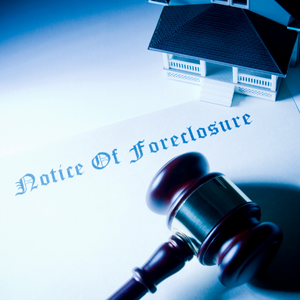
The Foreclosure Process in Cleveland, OH
For those who own real estate in Cleveland, OH, it is important to learn about how to avoid losing it to repossession. Why does a lender issue a default notice? Foreclosure in Cleveland starts after a borrower stops paying their mortgage.
A borrower in default on payment has very little time to settle matters by paying off or coming to an arrangement with the lender. If they fail to comply, the lender is free to sue to obtain court approval for selling the home.
There are many opportunities to inquire about solutions to the issue, such as divisions on payment plans. Your lender’s communication process and obtaining the services of a housing or foreclosure attorney in Ohio shouldn’t be a hassle.
It is important to provide yourself with the means of acting sooner rather than later. Having a plan in place is the best course of action long before a lender starts a foreclosure process. Residents of Cleveland will appreciate the above steps.
Navigating Ohio’s Foreclosure Laws: A Guide for Homeowners
Understanding Ohio’s foreclosure law is important for Cleveland homeowners trying to save their houses. For any serious cases that may deal with foreclosure, Ohio is one of the states with judicial foreclosure. So, lenders will have to sue in order to foreclose on a home.
For homeowners, any notices should be dealt with in a timely manner, and for any legal notice, a foreclosure attorney should be able to help formulate plans and answers best suited to them. Ohio especially has timelines and requirements that include the redemption period, which is the few days given to a homeowner to reclaim their property after a sheriff’s sale.
Be it government-backed programs or any other initiative, loan modification or refinancing is always a good first step to take in order to control and reduce loss with mortgage debts. And, after that, the advanced mediation programs in Cuyahoga County should be able to assist homeowners and lenders in conflict resolution.
Under Ohio law, if a reasonable and logical approach with the rights and legal permits is taken, the homeowner should be able to stop the mortgage or any foreclosure paperwork and be able to offer other logical and fulfilling solutions that will benefit both parties.
Legal Rights and Protections for Ohio Residents Facing Home Loss Due to Non-payment
Ohio residents facing foreclosure are entitled to a number of legal rights and protections that may aid them in retaining their homes. Such rights are extremely important for homeowners in Cleveland, OH, who may be having difficulties servicing their mortgage.

Under Ohio law, lenders must comply with a number of steps in a specific order, which will postpone the foreclosure of a property. Ohio residents will be afforded the opportunity to find other options. One of the key protections in place is the right to an adequate hearing before the commencement of any foreclosure activities.
Loan modification and refinancing are two options available to homeowners. Moreover, Ohio’s foreclosure mediation program allows homeowners to deal directly with lenders in an effort to find workable solutions.
Understanding the legal protections in Cleveland and Ohio, as well as other federal protections, especially under the Consumer Financial Protection Bureau (CFPB), is equally important. It is the law that lenders must work in good faith with their borrowers. Legal aid organizations in Cleveland offer assistance to those suffering the stress of foreclosure, providing aid to residents facing home loss due to non-payment.
Exercising these rights and protections gives homeowners a greater opportunity to avoid foreclosure and keep their homes in Ohio.
The Importance of Timely Communication with Lenders When Facing Foreclosure
Until foreclosure is upon you and your home in Cleveland, OH, you should engage with your lender as soon as you have notice of a mortgage default. With proactive communication, banks may explore alternatives to foreclosure once you start discussions with your mortgage lender.
Prompt communication of financial difficulties proves that you are ready to mitigate the loss. Loan modification, partial repayment, and even forbearance are potential discussions that can emerge if the above dialogues are initiated. The purpose is to ease the financial stress enough to allow the individual or family to retain the house.
The lender is more likely to come to a confidential, informal understanding with you if you are in regular communication and they can trust you. You are much more likely to meet the necessary steps to retain your home and become less likely to lose your house. Regularly informed about steps planned for communication, you are much more likely to meet and exceed guidelines.
These actions come across as much more voluntary, and you are likely to retain ownership as lenders perceive you to be in difficult times.
Tips for Negotiating with Lenders to Delay or Cancel a Pending Foreclosure
When a mortgage is in foreclosure in Cleveland, OH, effective negotiation with the lender may be able to delay or cancel foreclosure. Outline your willingness to arrive at a solution and present the relevant facts and figures to resolve the issues raised.
To support your case, you may have to obtain documents to support your financial hardship, including your current loan statements or even receipts and invoices. If the loan is not satisfactory, forbearance could be an alternative. There is nothing worse than increasing your expenses as a result of a loan.
The holistic approach of a HUD-approved housing counselor can add value to you in navigating the steps of the foreclosure process. On the other extreme, propose an alternative to foreclosure, such as an agreement of deed in lieu or a short sale.
The best approach to use when foreclosures are a threat is a rational and tiered approach to address possible alternative settlements that are available. Cleveland is a case in point, where it has even become a target for expenditure.
Legal Steps to Prevent Home Foreclosure in Ohio
Homeowners in Ohio are protected against the possibility of losing their homes to foreclosure in a number of ways, such as foreclosure mediation, which can help streamline a potential loan modification or repayment strategy.

Because applying for Chapter 13 bankruptcy can be a potential strategy, it goes without saying that it will stave off the potential of losing one’s home, while repayment of other outstanding debts can be achieved. Ohio’s reinstatement period as a legal provision permits the catching up of overdue payments on the home while simultaneously preventing it from being auctioned off.
Why else would homeowners in Ohio prefer stalling the emptying of their homes, other than gaining equity on their foreclosure cases? Defaulting homeowners do stand a chance of legally saving their homes if only they would rationally consult a foreclosure lawyer in Ohio, as well as respond appropriately to the foreclosure notices without delay.
Options Available to Cleveland Homeowners to Halt a Foreclosure Sale
Cleveland homeowners facing foreclosure have several effective options to halt the foreclosure sale and protect their homes. One viable strategy is pursuing a loan modification to adjust the terms of their mortgage, potentially lowering monthly payments to a more manageable level.
Refinancing the mortgage is another path, allowing homeowners to replace their current loan with one that has better terms. Homeowners should also consider a forbearance agreement, which temporarily pauses or reduces payments, providing breathing room during financial hardship.
Engaging in mediation can facilitate negotiations between the homeowner and lender to reach mutually agreeable solutions. Short sales present an alternative by selling the property for less than the balance owed on the mortgage, often with lender approval.
Chapter 13 bankruptcy is another option, enabling homeowners to reorganize debt and create a payment plan while stopping foreclosure proceedings. Seeking assistance from HUD-approved housing counselors can provide guidance and access to government programs designed specifically for those at risk of losing their homes in Cleveland, Ohio.
These strategies collectively empower homeowners to take proactive steps toward halting foreclosure and securing their financial stability.
Can You Stop a Foreclosure in Ohio?
Yes, you can stop a foreclosure in Ohio, including in Cleveland, by employing several effective strategies. Understanding the foreclosure process is crucial for homeowners facing financial difficulties.
One of the most effective ways to stop foreclosure is to communicate with your lender as soon as possible; lenders may offer loan modification options or repayment plans to help you catch up on missed payments. Additionally, exploring refinancing opportunities can provide a fresh loan structure that better suits your current financial situation.
Another viable option is filing for bankruptcy, which can temporarily halt the foreclosure process through an automatic stay and give you time to reorganize your finances. Seeking assistance from housing counseling agencies approved by the U.S. Department of Housing and Urban Development (HUD) can also provide valuable guidance and potentially negotiate better terms with your lender. Moreover, some homeowners might consider selling their home through a short sale if they owe more than the house’s market value.
Taking proactive measures early on is essential in preventing foreclosure and protecting your investment in Cleveland’s real estate market.
What Is the Best Way to Stop a Foreclosure?
The best way to stop a foreclosure on your home in Cleveland, OH, involves a strategic approach tailored to your unique financial situation. One effective strategy is to engage in open communication with your mortgage lender to explore loan modification options that can make payments more manageable.

Additionally, considering refinancing opportunities might provide you with lower interest rates and extended payment terms. Homeowners may also benefit from understanding the foreclosure laws in Ohio, as these can offer protections and potential extensions during the process.
Seeking assistance from HUD-approved housing counseling agencies in Cleveland can provide guidance and negotiation support. If you’re facing severe financial hardship, filing for bankruptcy might halt the foreclosure process temporarily, allowing you time to reorganize your finances.
Lastly, selling your home through a short sale could be a viable option if maintaining ownership is not feasible. Each of these strategies requires careful consideration and action but can effectively prevent foreclosure and protect your home investment.
Do you need to stop foreclosure and sell your home quickly? Cleveland House Buyers is the trusted company that buys homes in Cleveland, giving homeowners fair cash offers and a stress-free process. As experienced cash home buyers in Cleveland, we handle everything with no repairs, no agent fees, and no delays. If you’re looking to sell your Ohio house faster, we’re here to make it happen. Contact us today at (440) 577-6552 for your free, no-obligation cash offer and take the first step toward peace of mind.
Helpful Cleveland Blog Articles
- Optimal Months For Selling Your Home In Cleveland, Ohio
- Sale Of A Cleveland, OH Home Amidst A Pending Lawsuit
- How To Successfully Sell Your House At Auction In Cleveland, OH
- Expert Tips For Downsizing Your Home In Cleveland, Ohio
- Selling a Fixer-Upper Home In Cleveland, Ohio’s Real Estate Market
- Successfully Selling Your Cleveland, OH, Home With A Squatter
- Navigating Inherited Real Estate With Siblings In Cleveland, OH
- Strategies To Stop Foreclosure On Your Home In Cleveland, OH
- Refinancing Your Cleveland, OH, Home After Divorce
- Inheriting A Mortgaged House In Cleveland, OH
- Closing After An Appraisal In Cleveland, OH
- A Guide To Selling Your House In Cleveland, OH
- Can Heir Property Be Sold in Cleveland, OH
- How Much Does Home Staging Cost in Cleveland, Ohio
- Can I Rent Out My House During Divorce in Cleveland, Ohio

| FORECLOSED | MORTGAGE LOAN | OHIOANS | INTEREST PAYMENTS | BANKS | TAXES |
| TAX | HOME OWNERSHIP | PROPERTY TAXES | PROPERTY TAX | LAWYER | REFINANCE |
| MONEY | LOSS MITIGATION | CREDIT REPORT | COST | SCAMMERS | SCAM |
| LEGAL ASSISTANCE | TENANT | FEES | THE UNITED STATES | INFORMATION | DEBTS |
| U.S. DEPARTMENT OF HOUSING AND URBAN DEVELOPMENT (HUD) | RISKS | REPAYMENTS PLANS | RENTERS | LANDLORD | INSURANCE |
| EQUITY | CREDIT SCORE | ATTORNEY FEES |
